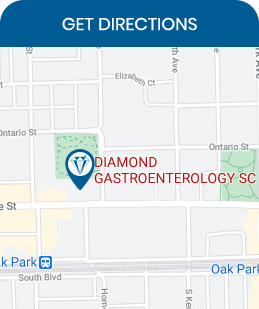4 Questions to Ask IBS Treatment Specialist
If you are suffering from IBS, come to Diamond Gastroenterology for comprehensive treatment. For more information, contact us or book an appointment online. We serve patients from Oak Park, IL and surrounding areas.


Additional Services We Offer
▸ Endoscopy
▸ IBS Treatment
▸ Crohn’s Disease
▸ Ulcerative Colitis
▸ Abdominal Pain
▸ Colonoscopy
▸ Rectal Bleeding
▸ Colon Cancer Screening
▸ Procedures
▸ Specialties
Additional Services We Offer
▸ Endoscopy
▸ IBS Treatment
▸ Crohn’s Disease
▸ Ulcerative Colitis
▸ Abdominal Pain
▸ Colonoscopy
▸ Rectal Bleeding
▸ Colon Cancer Screening
▸ Procedures
▸ Specialties





